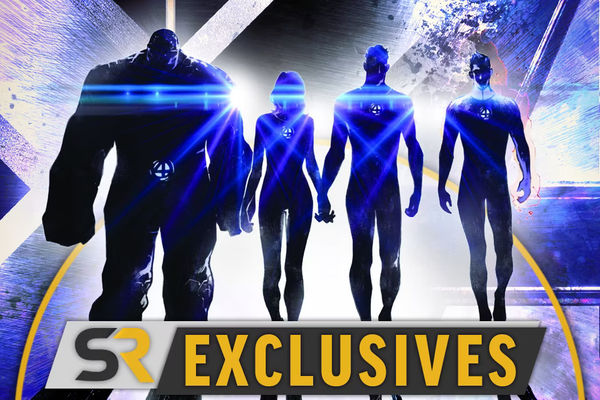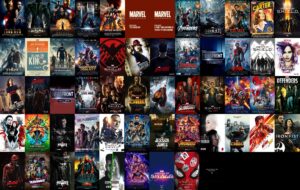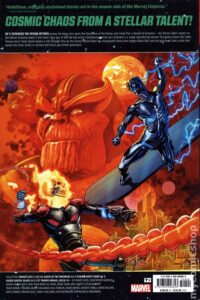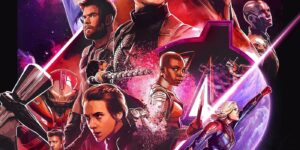The Marvel Cinematic Universe (MCU) has long been known for its epic battles, superhero showdowns, and universe-saving plots. But as the franchise has grown and evolved, its films have also begun to explore more intimate, personal themes – particularly when it comes to family dynamics. In recent years, MCU movies have delved deeper into the complexities of family relationships, revealing the ways in which they can be both a source of strength and a potential liability for our favorite heroes.

- Immersive Visuals Redefine The Cinematic Experience: A Look Into The Mind-Blowing Special Effects Of The Latest MCU Blockbuster
- How Marvel’s Recent Movies Appeal To International Audiences
- The Most Iconic MCU Movie Weapons
- The Legacy Of Iron Man In The MCU: From The First Movie To Now
- The Top MCU Heroes: From Iron Man To The Latest Release
One of the most striking examples of this trend can be seen in "Black Panther." On the surface, the film is a classic hero origin story, following T’Challa (Chadwick Boseman) as he assumes the throne of Wakanda and confronts the threat posed by Erik Killmonger (Michael B. Jordan). But as the movie progresses, it becomes clear that the true heart of the story lies in T’Challa’s relationships with his family members – particularly his sister Shuri (Letitia Wright) and his father T’Chaka (John Kani).
Throughout the film, T’Challa grapples with the weight of his family’s legacy, struggling to balance his own sense of identity with the expectations placed upon him by his parents and his nation. Meanwhile, Shuri provides a source of emotional support and guidance, helping T’Challa to navigate the complexities of his responsibilities as a leader. And in T’Chaka, we see a character who is both fiercely loving and supremely flawed – a man whose mistakes have had far-reaching consequences for his family and his country.
In "Guardians of the Galaxy Vol. 2," we see a very different kind of family dynamic at play. This film centers around Peter Quill (Chris Pratt), a human who was abducted by aliens as a child and raised as one of their own. As Peter searches for answers about his mysterious past, he must confront the truth about his family – and specifically, about his father Ego (Kurt Russell).
Ego is a charismatic and manipulative figure, who uses his charm and his advanced technology to control and manipulate those around him. Through his relationship with Peter, we see the ways in which family can be both a source of love and a source of pain – and how the very people who are supposed to care for us can sometimes be the ones who hurt us the most.
In "Thor: Ragnarok," we see the god of thunder himself (Chris Hemsworth) struggling to come to terms with his own family dynamics. Thor’s adoptive brother Loki (Tom Hiddleston) has long been a source of tension and conflict in his life, and in this film, their complicated history comes to a head. Meanwhile, Thor also meets his long-lost sister Hela (Cate Blanchett) – a fierce warrior who has been languishing in prison for centuries.
As Thor navigates these relationships, we see the ways in which family can both unite and divide us. Loki and Hela serve as foils for Thor, representing different aspects of his own personality and identity. Through his interactions with them, Thor is forced to confront the darker aspects of his own nature – and to discover a sense of inner strength and resilience that he never knew he had.
Finally, in the most recent Marvel film "Shang-Chi and the Legend of the Ten Rings," we see the newest take on the theme. The movie tells the origin story of Shang-Chi (Simu Liu), a Chinese martial artist who possesses extraordinary abilities and is revealed to have links to an ancient clan led by his father Wenwu (Tony Leung).
As Shang-Chi goes through redemption arc after discovering a traumatic experience his sister has been living in due to family problems, his motivations begin to become clear, connecting him with love that could be also described as the product of family legacy. Taking family down if means preventing global conflict, or stopping abuse of ultimate dark ancient forces power takes front.
In many ways, the MCU’s exploration of family dynamics feels like a response to the changing world around us. As our own personal and cultural definitions of family continue to evolve, the franchise has simply followed suit, reflecting the complex realities of family life back at us.
Of course, this isn’t to say that the MCU’s take on family is always perfect. There are still plenty of critics who argue that the franchise relies too heavily on the "chosen family" trope – where a hero finds a sense of belonging and purpose among a group of misfits and outsiders. And while this can certainly be a compelling narrative device, it can also feel like a cop-out – a way of sidestepping the complexities of actual family relationships in favor of something more easily digestible.
Still, there’s no denying that the MCU’s exploration of family dynamics has helped to enrich the franchise as a whole. By delving deeper into the personal lives and relationships of its heroes, the franchise has created characters that feel more fully realized and more fully human. And as the series continues to evolve and grow, it will be interesting to see how this theme continues to unfold – and what other insights the MCU might offer into the complexities of family life.




